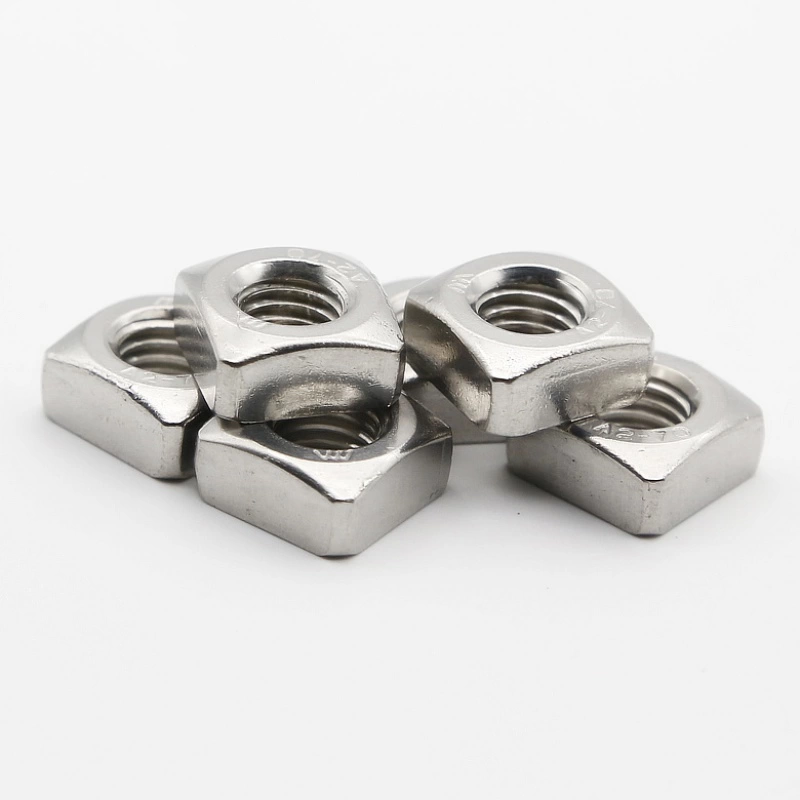

Comparing Plain Washers and Spring Washers in Fastener Applications
Nov . 27, 2024 18:08 Back to list
Comparing Plain Washers and Spring Washers in Fastener Applications
Understanding Plain Washers and Spring Washers Essential Fasteners in Engineering
Fasteners are pivotal components in the world of engineering, construction, and manufacturing. Among the various fasteners available, plain washers and spring washers play significant roles in securing assemblies and preventing damage to surfaces. In this article, we will delve into the characteristics, functions, and applications of these two vital types of washers, highlighting their importance in creating durable and reliable connections in various settings.
What is a Washer?
A washer is a thin plate, usually circular, with a hole in the center that is used to distribute the load of a fastener, such as a bolt or nut. Washers serve multiple purposes they help to prevent damage to surfaces, provide cushioning, and maintain the integrity of the assembly by preventing loosening due to vibrations. There are various types of washers, but two of the most common are plain (flat) washers and spring washers.
Plain Washers
Plain washers are the simplest form of washers, characterized by their flat, round shape. They are typically made from materials like steel, stainless steel, plastic, or rubber. The primary function of a plain washer is to distribute the load of a threaded fastener over a larger surface area, which minimizes the risk of damage to the material being fastened.
Benefits of Plain Washers
1. Load Distribution By increasing the surface area of the fastening point, plain washers reduce stress on the underlying material, helping to prevent deformation and damage. 2. Protection They act as a barrier between the fastener and the surface of the material, protecting against scratches and wear.
3. Prevention of Bolt Slippage When used with bolts and nuts, plain washers can help maintain the integrity of the joint by preventing slippage and loosening.
4. Compatibility Plain washers are available in various sizes and materials, making them compatible with a wide range of fasteners and applications.
Applications of Plain Washers
Plain washers are widely used in construction, automotive, and machinery applications
. They are commonly found in- Structural connections, such as beam-to-column attachments. - Automotive assemblies, providing a stable base for nuts and bolts. - Electrical applications, where they insulate and secure components.
'plain washer and spring washer - a fastener'

Spring Washers
Spring washers, also known as lock washers, are designed specifically to prevent fasteners from loosening under stress, particularly due to vibrations or rotational forces. These washers are typically shaped in a helical or wave pattern, providing resilience and resistance to loosening.
Benefits of Spring Washers
1. Vibration Resistance The primary function of a spring washer is to absorb shock and prevent the loosening of fasteners caused by vibration, making them ideal for dynamic applications.
2. Self-Locking Feature The unique design of spring washers creates a frictional force that helps to secure the fastener in place, providing a reliable locking mechanism.
3. Load Maintenance They maintain tension in the assembly, ensuring that the connection remains intact despite fluctuations in pressure or movement.
Applications of Spring Washers
Spring washers are particularly prevalent in applications where vibration is a concern. They can be found in
- Automotive engines, where they help secure various components. - Machinery and equipment, particularly in rotating parts where vibrations are inevitable. - Aerospace applications, where safety and reliability are paramount.
Conclusion
In the realm of fasteners, both plain washers and spring washers are essential components that serve specific functions to enhance the integrity and longevity of mechanical assemblies. While plain washers focus on load distribution and surface protection, spring washers provide resistance to loosening due to vibrations. Understanding the differences and applications of these washers is crucial for engineers and manufacturers aiming to create reliable and safe products.
Choosing the right type of washer can significantly impact the performance and durability of an assembly. Whether one is working on complex machinery or simple fastening tasks, recognizing the importance of these seemingly small components can lead to superior engineering outcomes and safer applications in various industries. As technology advances, the need for effective and durable fastening solutions will continue to grow, making the understanding of plain and spring washers ever more vital.
Latest news
-
High-Strength Hot Dip Galvanized Bolts - Hebei Longze | Corrosion Resistance, Customization
NewsJul.30,2025
-
Hot Dip Galvanized Bolts-Hebei Longze|Corrosion Resistance&High Strength
NewsJul.30,2025
-
High-Strength Hot-Dip Galvanized Bolts-Hebei Longze|Corrosion Resistance&High Strength
NewsJul.30,2025
-
Hot Dip Galvanized Bolts-Hebei Longze|Corrosion Resistance&High Strength
NewsJul.30,2025
-
Hot Dip Galvanized Bolts - Hebei Longze | Corrosion Resistance, High Strength
NewsJul.30,2025
-
High-Strength Hot Dip Galvanized Bolts-Hebei Longze|Corrosion Resistance, Grade 8.8
NewsJul.30,2025

